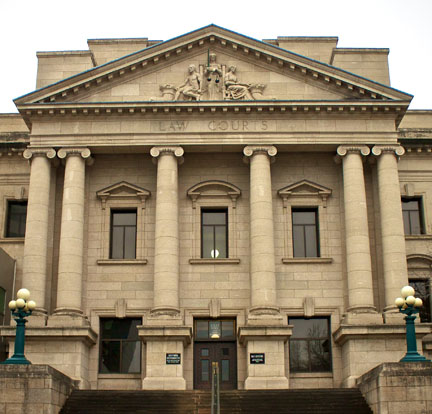After much back and forth, Manitoba Provincial Court judges are finally getting the pay hike they’ve been after.
 Finance Minister Stan Struthers announced yesterday that an all-party legislative committee approved the Judicial Compensation Committee’s recommendation for a pay increase of 2.7 per cent, which brings the judges’ annual salaries to $230,155. Some judges will also receive a five-per-cent northern living allowance and access to the same life insurance plan available to all public servants.
Finance Minister Stan Struthers announced yesterday that an all-party legislative committee approved the Judicial Compensation Committee’s recommendation for a pay increase of 2.7 per cent, which brings the judges’ annual salaries to $230,155. Some judges will also receive a five-per-cent northern living allowance and access to the same life insurance plan available to all public servants.
The committee asked for the raise last July and based it on the annual percentage increase in average weekly earnings in Manitoba for the previous calendar year.
However, the committee didn’t grant all aspects of the committee’s request, including a recommendation for the province to pay interest on any retroactive salary increases and retroactive life insurance premium refunds, along with a professional allowance fund of $2,000 for each senior judge and $3,000 for an educational allowance.
While he admitted the pay increase was fair, Struthers said the province needs to keep in mind what ordinary Manitobans earn every year.
“The standing committee is of the view that judges, as a recognized third level of government, should not be treated differently than any other level of government,” he said in his motion.
Manitoba judges’ salaries are partially based on the earnings of judges in Saskatchewan, Nova Scotia, and New Brunswick. However, even with the increase, their salaries are lower than those of judges in larger provinces.
The judges have been seeking a pay hike for some time now. More than three years ago, the legislative committee rejected the compensation committee’s recommendation for a five-per-cent raise for 2009 and 2010, and instead made it 2.9 per cent.
The Canadian Association of Provincial Court Judges challenged that decision. Manitoba Court of Queen’s Bench Justice Jeffery Oliphant ruled in the judges’ favour and ordered the government to pay the salary differentials and the judges’ court costs. The provincial government appealed that decision to the Manitoba Court of Appeal where a ruling is still pending.
 Finance Minister Stan Struthers announced yesterday that an all-party legislative committee approved the Judicial Compensation Committee’s recommendation for a pay increase of 2.7 per cent, which brings the judges’ annual salaries to $230,155. Some judges will also receive a five-per-cent northern living allowance and access to the same life insurance plan available to all public servants.
Finance Minister Stan Struthers announced yesterday that an all-party legislative committee approved the Judicial Compensation Committee’s recommendation for a pay increase of 2.7 per cent, which brings the judges’ annual salaries to $230,155. Some judges will also receive a five-per-cent northern living allowance and access to the same life insurance plan available to all public servants.The committee asked for the raise last July and based it on the annual percentage increase in average weekly earnings in Manitoba for the previous calendar year.
However, the committee didn’t grant all aspects of the committee’s request, including a recommendation for the province to pay interest on any retroactive salary increases and retroactive life insurance premium refunds, along with a professional allowance fund of $2,000 for each senior judge and $3,000 for an educational allowance.
While he admitted the pay increase was fair, Struthers said the province needs to keep in mind what ordinary Manitobans earn every year.
“The standing committee is of the view that judges, as a recognized third level of government, should not be treated differently than any other level of government,” he said in his motion.
Manitoba judges’ salaries are partially based on the earnings of judges in Saskatchewan, Nova Scotia, and New Brunswick. However, even with the increase, their salaries are lower than those of judges in larger provinces.
The judges have been seeking a pay hike for some time now. More than three years ago, the legislative committee rejected the compensation committee’s recommendation for a five-per-cent raise for 2009 and 2010, and instead made it 2.9 per cent.
The Canadian Association of Provincial Court Judges challenged that decision. Manitoba Court of Queen’s Bench Justice Jeffery Oliphant ruled in the judges’ favour and ordered the government to pay the salary differentials and the judges’ court costs. The provincial government appealed that decision to the Manitoba Court of Appeal where a ruling is still pending.







